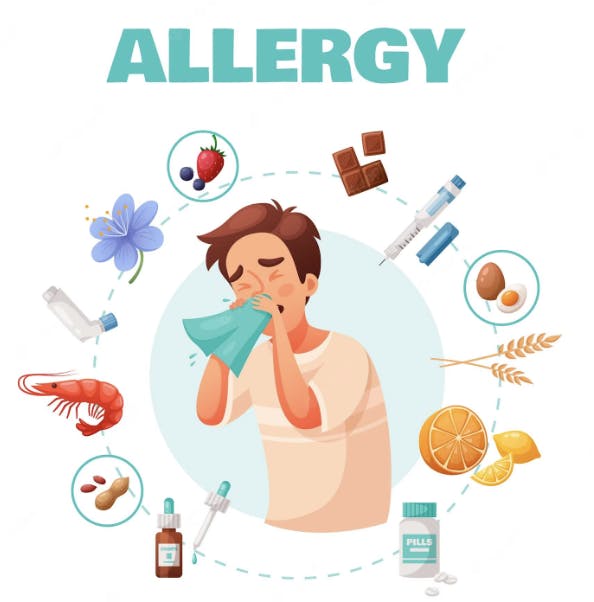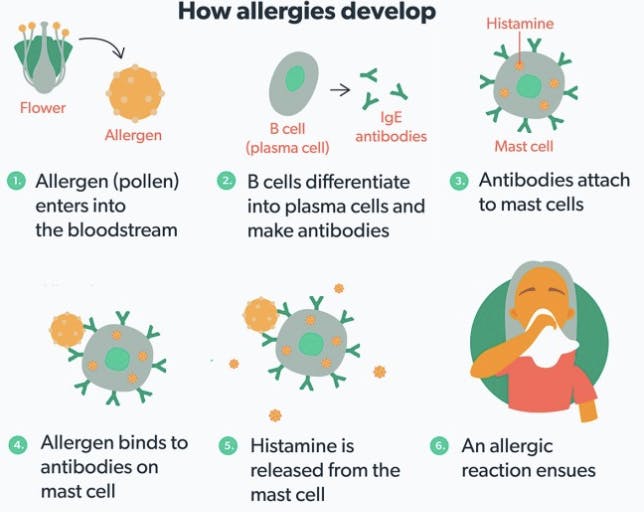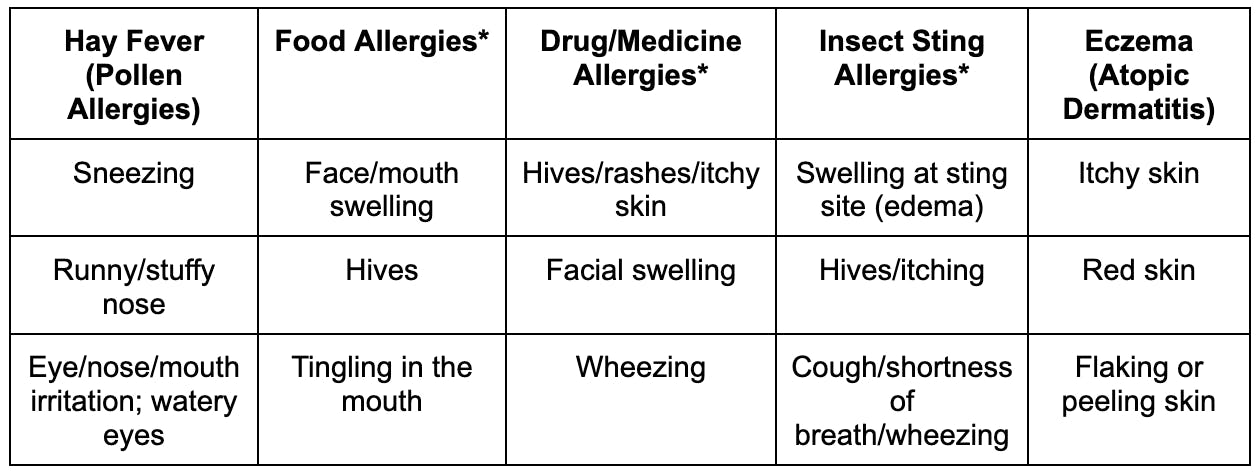TL;DR Science: Allergies
By Srishti S.
September 22, 2023 · 2 minute read
Biology
Cognitive Science
Medicine
Have you ever wondered why some of us are unaffected by springtime pollen while others find themselves sneezing? Or why not everyone can enjoy a good peanut butter and jelly sandwich without having a reaction? What really causes these allergies, and why do they vary among different people?

What is an allergy?
Put simply, an allergy is a condition where your immune system reacts to a foreign substance thinking it is dangerous. When you are exposed to an allergen (pollen, pet dander, milk, you name it), the body produces a large number of antibodies that cause some cells to release various chemicals. Histamines in particular are what cause the various symptoms we have come to associate with allergies. For a more detailed explanation, refer to the picture below:

Symptoms
Allergies to different substances can cause vastly different symptoms throughout the body, from the nasal passages to the skin. These symptoms can be mild or severe, sometimes even causing anaphylaxis, a deadly reaction that puts the body in a state of shock; therefore, it is important to be cautious and pay attention to whether you may be near a potential allergen.
Below is a table with common allergens and what symptoms may be associated with them; this can help you identify whether you might be allergic to something, but remember that a doctor’s confirmation is always necessary. Allergies marked with a (*) can cause anaphylaxis.

*Can cause anaphylaxis.
How do we develop allergies?
Allergies are still a relatively mysterious concept, and we do not exactly know why some people are more susceptible to react when in contact with certain substances. Allergies usually develop during childhood and continue to be present throughout one’s lifetime, though some allergies can subside as time goes on. Some adults also find themselves having their first allergic reactions later in life, usually due to a lack of exposure during their earlier years.
There are numerous environmental and genetic factors that play into whether or not you will be allergic to a certain substance. If your family has a history of being allergic to pet dander, for example, you are more likely to be allergic to it as well. However, we cannot predict the onset of allergies simply by looking at genetics; it is much more complicated than that.
TL;DR
Allergies are commonplace in our daily lives, with the simplest of substances being able to trigger complex bodily reactions; these conditions are rooted in our immune system trying to fight off potentially harmful material. It is important to be cautious when around known allergens to prevent any adverse reactions. However, with new medical advancements, it is becoming much easier to live a normal lifestyle, even with the symptoms that accompany allergies.
Here is a great video about allergies if you want to learn more!
https://www.youtube.com/watch?v=sM3FDsMAMdc
Sources:
https://www.mayoclinic.org/diseases-conditions/allergies/symptoms-causes/syc-20351497
Image Sources:
Did you enjoy this article?
About The Author
Srishti Swaminathan is a rising high school junior interested in STEM and writing. She enjoys reading, listening to music, and watching movies. If you have any comments or questions regarding this article, feel free to contact her at srishti@sciteens.org.